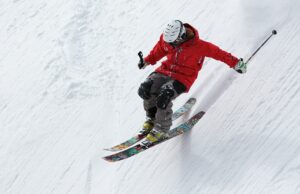Posted in Israel F. Piedra, Personal Injury
New Hampshire’s ski industry is a major part of the state’s economy. On a yearly basis, the industry can bring as much as o
New Hampshire’s “Ski Immunity” Statute is found at RSA 225-A:24. The statute reads, in part:
“Each person who participates in the sport of skiing, snowboarding, snow tubing, and snowshoeing accepts as a matter of law, the dangers inherent in the sport, and to that extent may not maintain an action against the operator for any injuries which result from such inherent risks, dangers, or hazards.”
In plain English, this statute is intended to protect ski mountains from liability for any injury which arises from risks “inherent” to skiing. These include collisions with other skiers, running into poles or towers, and even inadequately constructed or maintained ski jumps. Under the law, ski areas may not be found negligent for injuries arising from inherent risks. Cecere v. Loon Mt. Rec. Corp., 155 N.H. 289 (2007).
To make matters worse for injured skiers, ski injury cases often involve a written release, or waiver of liability, releasing any potential negligence claims. Although the general rule in New Hampshire is that liability waivers are ineffective, the New Hampshire Supreme Court has found in favor of ski resorts and barred claims based on written waivers signed by injured skiers. McGrath v. SNH Dev., Inc., 158 N.H. 540 (2009).
Clearly, the New Hampshire courts and legislature have circled the wagons around the ski industry in the state. No matter how serious the injury, bringing an action against a ski mountain is an uphill battle (though an action against another skier is not necessarily barred).
That being said, there are some situations in which an injured New Hampshire skier could potentially recover against a ski mountain in New Hampshire. Importantly, in order to preserve the potential for a lawsuit against a ski resort, an injured skier must usually notify the mountain of the injury by certified mail within 90 days (see RSA 225-A:25). The lawsuit itself must be filed within two years of the injury.
If you were injured on a ski mountain or ski lift, consider calling Welts, White & Fontaine to evaluate your case. You can contact us at (603) 883-0797 or through the form at the very bottom of the page.
This blog is intended for informational use only. The information contained herein should not be construed as offering legal advice, a legal opinion, or creating an attorney-client relationship.
